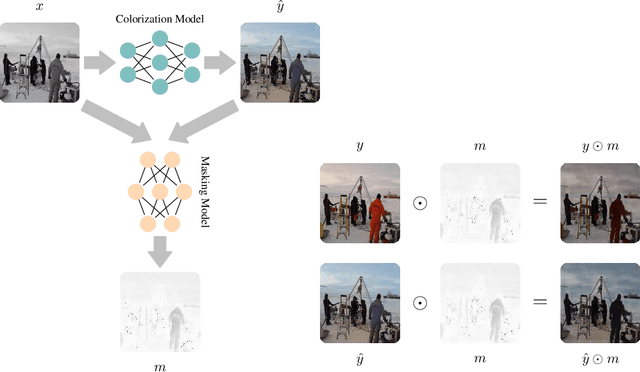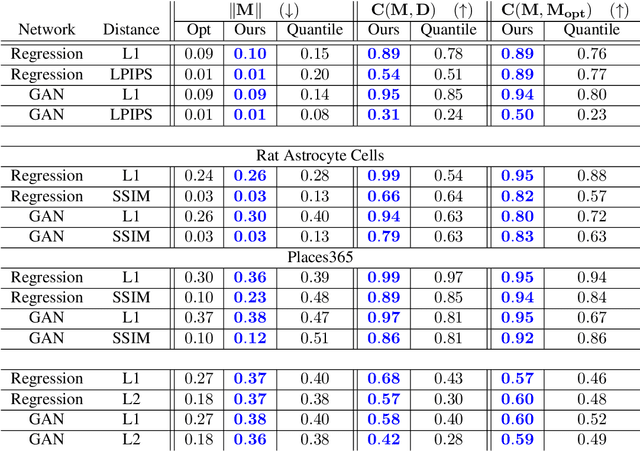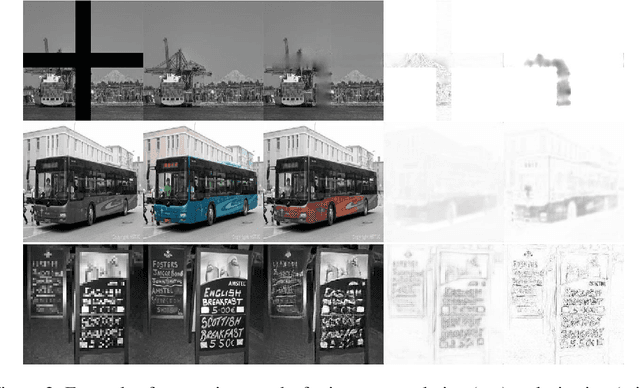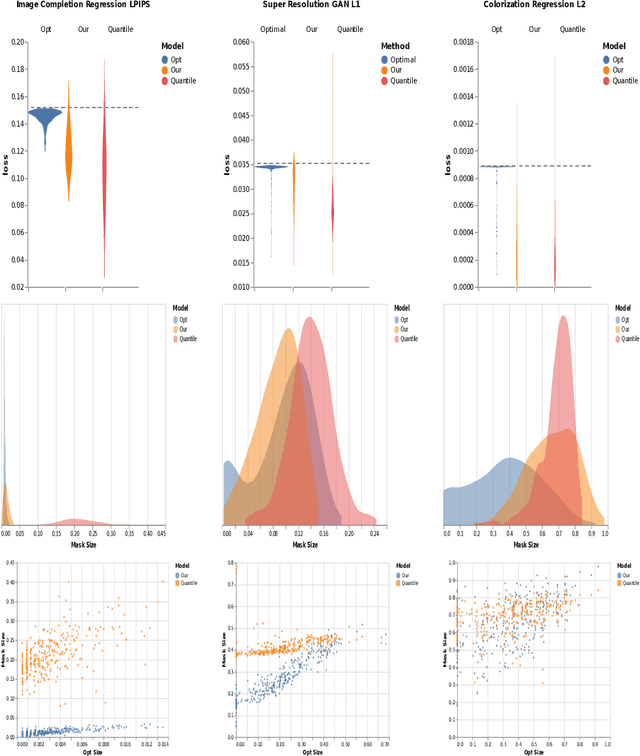What's Behind the Mask: Estimating Uncertainty in Image-to-Image Problems
Paper and Code
Nov 28, 2022



Estimating uncertainty in image-to-image networks is an important task, particularly as such networks are being increasingly deployed in the biological and medical imaging realms. In this paper, we introduce a new approach to this problem based on masking. Given an existing image-to-image network, our approach computes a mask such that the distance between the masked reconstructed image and the masked true image is guaranteed to be less than a specified threshold, with high probability. The mask thus identifies the more certain regions of the reconstructed image. Our approach is agnostic to the underlying image-to-image network, and only requires triples of the input (degraded), reconstructed and true images for training. Furthermore, our method is agnostic to the distance metric used. As a result, one can use $L_p$-style distances or perceptual distances like LPIPS, which contrasts with interval-based approaches to uncertainty. Our theoretical guarantees derive from a conformal calibration procedure. We evaluate our mask-based approach to uncertainty on image colorization, image completion, and super-resolution tasks, demonstrating high quality performance on each.
 Add to Chrome
Add to Chrome Add to Firefox
Add to Firefox Add to Edge
Add to Edge